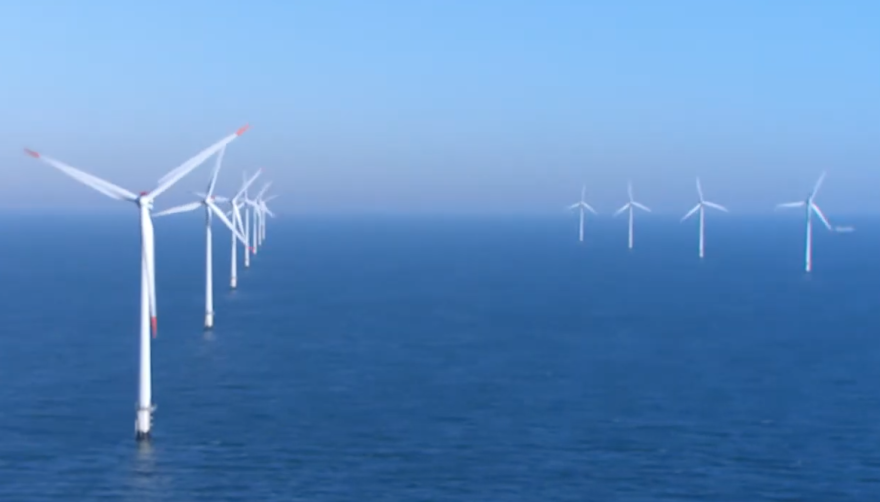A new coalition of 40 organizations is asking the six New England states to work together to support offshore wind.
But cooperation could butt up against some of the interstate competition that has happened in wind energy so far.
At a press conference Wednesday announcing the new umbrella group, New England for Offshore Wind, here’s what New Hampshire State Senator David Watters had to say about spreading the love:
“In southern New England, some of the port facilities and manufacturing and staging areas are kind of getting to be at capacity. And there's no reason why we couldn't begin in Maine and New Hampshire to provide a space for this industry.”
Rhode Island and Massachusetts have celebrated their early victories in offshore wind. Rhode Island lays claim to the first commercial offshore wind farm in the United States (Block Island Wind Farm, with five turbines), while Massachusetts has been on track to host the first “utility-scale” project, Vineyard Wind, with about 84 turbines.
That wind farm, Vineyard Wind 1, has been delayed by the Trump administration’s Bureau of Ocean Energy Management, which asked for additional review and permitting. The process is still ongoing, with a new deadline of Dec. 18 for the environmental review.
The New England for Offshore Wind coalition includes environmental groups, business, labor, and universities, among others. It does not include wind development companies; the group says it wants to be independent.
So far, no fishing organizations are listed among the major supporters, but Rhode Island charter fishing captain David Monti spoke in favor of offshore wind during Wednesday’s press conference.
Organizers sought to highlight participation from throughout New England.
Sixteen-year-old Sena Wazer, a climate justice advocate, added her voice from Connecticut.
“In this time, where federal leadership is so lacking, we can show the country and the world that we will continue to fight for a livable planet for my generation,” she said.
Dr. Regina Laroque, an infectious disease physician at Massachusetts General Hospital, said offshore wind will help protect human health, because we’ll burn less fossil fuel.
“The bottom line is this: We have to stop powering our homes, our businesses, and our hospitals by burning things,” she said. “The combustion of fossil fuels is exerting a massive cost on our health.”
The coalition sent a letter Wednesday to the six New England governors asking them to issue a joint resolution in support of regional collaboration on offshore wind.








